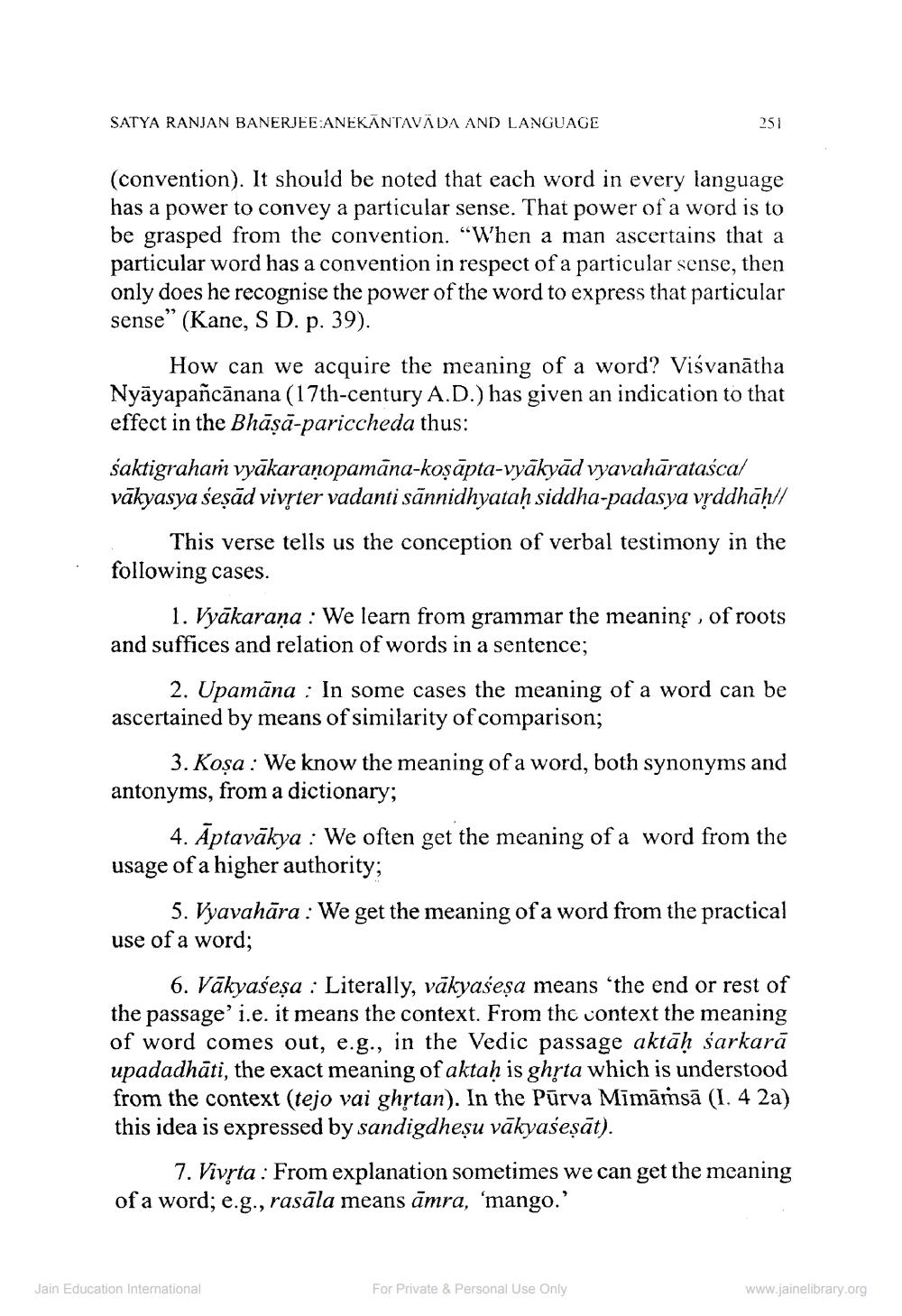________________
SATYA RANJAN BANERJEE:ANEKANTAVĀDA AND LANGUAGE
251
(convention). It should be noted that each word in every language has a power to convey a particular sense. That power of a word is to be grasped from the convention. “When a man ascertains that a particular word has a convention in respect of a particular sense, then only does he recognise the power of the word to express that particular sense” (Kane, Ş D. p. 39).
How can we acquire the meaning of a word? Viśvanātha Nyāyapañcānana (17th-century A.D.) has given an indication to that effect in the Bhāṣā-pariccheda thus: saktigraham vyākaraṇopamāna-koșāpta-vyākyād vyavahāratascal vākyasya seșād vivrter vadanti sānnidhyataḥ siddha-padasya vrddhāḥ//
This verse tells us the conception of verbal testimony in the following cases.
1. Vyākaraṇa : We learn from grammar the meaning, of roots and suffices and relation of words in a sentence;
2. Upamāna : In some cases the meaning of a word can be ascertained by means of similarity of comparison;
3. Koşa : We know the meaning of a word, both synonyms and antonyms, from a dictionary;
4. Āptavākya : We often get the meaning of a word from the usage of a higher authority;
5. Vyavahāra : We get the meaning of a word from the practical use of a word;
6. Vākyaseșa : Literally, vākyasesa means “the end or rest of the passage'i.e. it means the context. From the context the meaning of word comes out, e.g., in the Vedic passage aktāḥ sarkarā upadadhāti, the exact meaning of aktaḥ is ghrta which is understood from the context (tejo vai ghrtan). In the Pūrva Mīmāmsā (1. 4 2a) this idea is expressed by sandigdheșu vākyaseșāt).
7. Vivrta : From explanation sometimes we can get the meaning of a word; e.g., rasāla means āmra, 'mango.'
Jain Education International
For Private & Personal Use Only
www.jainelibrary.org




